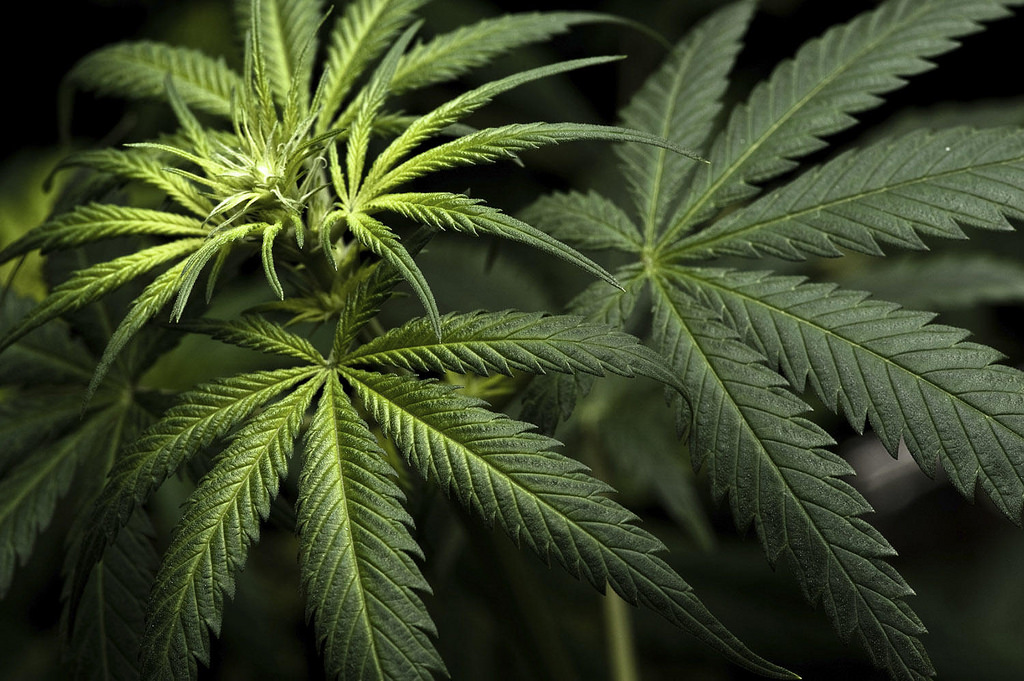Politics
Marijuana Legalization ‘Inevitable,’ Top Rhode Island Lawmakers Say, But It Might Not Happen This Year

The top lawmakers in Rhode Island’s House and Senate both say marijuana legalization in “inevitable” in the state—but nevertheless, there’s still uncertainty about the prospects of passing the reform this year.
As the legislature considers separate legalization proposals from the governor and legislative leaders, both House Speaker Joseph Shekarchi (D) and Senate President Dominick Ruggerio (D) have said that the writing is on the wall when it comes to ending prohibition. That said, concerns about the certain provisions of the measures have left the leaders unsure of when exactly marijuana prohibition could end.
“I am not philosophically opposed to the legalization of recreational marijuana,” Shekarchi told The Providence Journal this week. “I don’t want people to get that impression, because I am not.”
However, the specifics of the legislation have faced opposition, creating “a lot of uncertainty around it.” Legalization is “inevitable” and “going to happen,” he said, but the deal isn’t done yet, in part because legislators need to nail down the rules and regulations around licensing, taxation and the role of the state’s existing medical cannabis market.
The speaker said in a separate interview that while the House Finance Committee is slated to take up Gov. Daniel McKee’s (D) legalization proposal on Thursday, it’s “very possible it might not get done this year.”
A competing legalization bill—one that was put together by Senate Majority Leader Michael McCaffrey (D) and a key chairman at the behest of Ruggerio—is also in play this session.
“As far as marijuana goes, I want to be steady and slow. I want to study it more, and take a deliberative approach,” Shekarchi said. “I’m not in a rush to do it.”
Ruggerio echoed the speaker’s point and characterized the reform move as “inevitable” in an interview with the Journal. But while advocates would generally prefer for that inevitability to come to fruition sooner rather than later, the Senate leader also tempered expectations and said legalization might not happen in 2021.
“Do we need to pass it this year? Not necessarily, but I think we have worked pretty hard on this and the governor has, the governor’s office,” he said. “The House doesn’t really have a plan at this point in time so we will see where it goes.”
There is not yet a standalone legalization bill in the House this session. But beyond considering the governor’s proposal on Thursday, the Finance Committee will also be taking up a bill from Rep. Scott Slater (D) that he’s described as establishing a “de facto recreational program.”
The legislation would eliminate a series of existing regulations for the state’s medical cannabis program such as the plant-tagging system for patients and caregivers who want to cultivate marijuana. Annual dispensary license fees would be reduced from $500,000 to $5,000 and the cap on the number of shops that could operate would be removed.
Further, the definition of who could qualify as a medical marijuana patient would be significantly expanded to include “any serious health condition a reasonable practitioner believes, based on their experience, knowledge, and reasonable judgment as a health care provider, could be alleviated or treated through the use of medical marijuana.” Nurse practitioners, and not just doctors, would be allowed to recommend cannabis.
The committee is also slated to consider two other medical cannabis-focused measures. One would earmark marijuana tax revenue for a “distressed communities relief fund,” as well as charitable organizations that legislative leaders would select each year. The other bill would require the state Department of Business Regulation to analyze the licensing system from a social equity and racial perspective and move to eliminate barriers to entry for people most impacted by prohibition to participate in the industry.
Thursday’s House meeting comes weeks after the Senate Judiciary and Finance Committees heard testimony from administration officials on McKee’s budget measure as well as legislative leaders sponsoring the competing bill. While the panels didn’t vote on either proposal, members generally discussed legalization as an inevitability in the state, especially with neighboring states enacting the reform.
Both the governor and the leaders’ legalization plans are notably different than the proposal that former Gov. Gina Raimondo (D) had included in her budget last year. Prior to leaving office to join the Biden administration as commerce secretary, she called for legalization through a state-run model.
McKee gave initial insights into his perspective on the reform in January, saying that “it’s time that [legalization] happens” and that he’s “more leaning towards an entrepreneurial strategy there to let that roll that way.”
Shekarchi, meanwhile, has said he’s “absolutely” open to the idea of cannabis legalization and also leans toward privatization.
Late last year, the Senate Finance Committee began preliminary consideration of legalization in preparation for the 2021 session, with lawmakers generally accepting the reform as an inevitability. “I certainly do think we’ll act on the issue, whether it’s more private or more state,” Sen. Ryan Pearson (D), who now serves as the panel’s chairman, said at the time.
The growing momentum in Rhode Island also comes as lawmakers in neighboring Connecticut are also moving toward legalizing marijuana this year. Gov. Ned Lamont (D) included a cannabis legalization plan in his budget request last month.
Meanwhile, the Rhode Island Senate approved a bill last month that would allow safe consumption sites where people could use illicit drugs under medical supervision and receive resources to enter treatment. Harm reduction advocates say this would prevent overdose deaths and help de-stigmatize substance misuse.
The Senate Judiciary Committee also held a hearing last month on legislation that would end criminal penalties for possessing small amounts of drugs and replace them with a $100 fine.
Key Senate Chair Shifts Stance On Tying Marijuana Banking Bill To Sentencing Reform
















